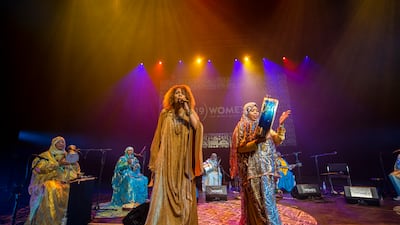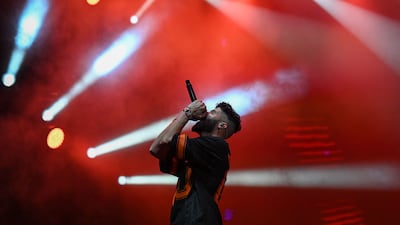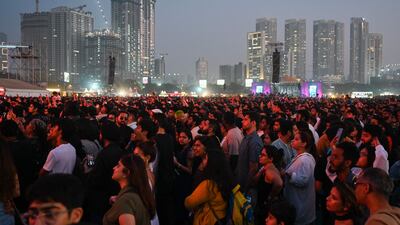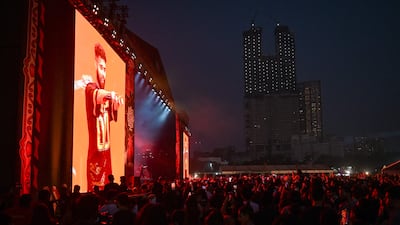Lemma's performance in Abu Dhabi is the gig they were born to play.
According to the group's founder and singer Souad Asla, the concert by the Algerian female collective, taking place on Friday at NYU Abu Dhabi as part of the venue's Barzakh Festival, will speak to why the group formed in the first place.
.
Asla began her career as a solo artist. Her 2008 debut album Jawal was well-received in world music circles for its marriage of Algerian folk tempos and melodies with the mystical sounds of North African Gnawa music.
Between tours and solo projects, Asla would also often return to the small Algerian town of Taghit to creatively rejuvenate.
She recalls taking part in an weekly all-women gathering where they sang and danced to traditional folk songs.
“What I loved about these evenings was that they were places where women could totally express themselves and talk freely,” Asla says. “But when I kept coming back, those groups became smaller. They told me the new generation was no longer interested in maintaining these gatherings and there was this fear that this tradition would fade away.”
The decline was also down to these events being intensely private affairs.
Asla says she created Lemma (Algerian for gathering or harvest, she says) in 2015 to address this, with the 12-piece collective performing these intimate songs in a public setting.
Through a series of rehearsals in Taghit, Lemma honed down the genres they would present, including Sufi-inspired Al Farda, the mystical trance sounds of Hadra, an Algerian music genre, and Gnawa.
"These are all forms of music that have been passed down orally and are at risk of extinction. So each show demonstrates how important they are," says Asla. "And to now bring this to the Arab world, I think, makes it extra poignant.
“We haven’t played a concert in the Arab world for a long time, so to come to Abu Dhabi is important for us. We want to showcase our Algerian and North African heritage, which is essentially a shared heritage in the Arab world.”
Getting the band together was a major task, she says, and required persuading members and, in some cases, their families, to get on board.
Their concerts, particularly those held in Algeria, caused a stir for their transgressive streak.
"People were surprised to see us perform the kind of music that many associated with male artists," Asla says. "The crowds loved the fact that we were breaking some of these boundaries and we got a great reception.”
That momentum propelled Lemma's self-titled debut album in 2019 to become a commercial success in Algeria. Sung mostly in Berber and Arabic, the tracks feature percolating percussion with vocals following a call-and-response style.
Standout songs include Maachouk Nbi and Zaffani, which channel the energy and joy Asla experienced in those closed gatherings in Taghit.
Despite the various sounds, culture and traditions covered in the songs, Asla says they are all rooted by a sense of community.
This is why Lemma concerts, from Algeria to Finland, are never lost in translation.
“The songs come from a rich history that is also open and welcoming,” she says. “I look forward to coming to Abu Dhabi and sharing that message and joy with all of you.”
Barzakh Festival will run on February 3 and 4 at the East Plaza in front of The Arts Centre at NYU Abu Dhabi. Tickets are priced at Dh150 for one night and Dh250 for two. More information is at nyuad-artscenter.org













